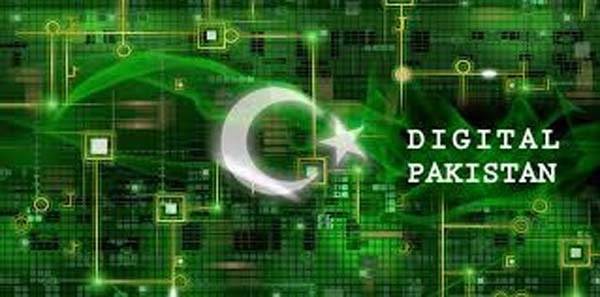Digitization of Pakistan, drastic transformation
Shares

ISLAMABAD - The increasing digitization of life has brought about drastic transformation in socio-cultural and economic landscape of Pakistan during the last two decades with exponential growth in use of electronic gadgets and tools of Information Communication Technologies (ICTs).
The electronic gadgets have become a commonplace phenomenon of everyday life in almost every household even in the remotest parts of the country. Therefore, if anything happens worth watching or reading in any part of the globe, it does not go unnoticed on social media. Similarly, the trending (the stuff of your choice) that appears on the screen keeps the viewer mentally engaged for hours.
Everything has been brought down to the pocket size minicomputer on the palm of the consumer. It is a whole world of socialization with a number of social media websites. The Facebook and whatsapp groups of friends, family members and colleagues have once again virtually connected people.
The IT has provided alternate means to almost everything from education to citizen-government interaction, economy to market-customer relations, socialization to marketing, healthcare to banking sector, praying to mourning, greetings to happy birthday wishes, sports to entertainment, media to business, Google maps to webinars, YouTube Channels to online newspaper, e-commerce to online games, e-payment to online transaction, online shopping to digital tourism. Artificial Intelligence (IA), robotics, Internet of Things (IoT), big data, automation, cloud computing, and mobility had a growing effect over the industry, economy and socio-cultural environment of the country.
Therefore, the incumbent government has pursued the dream to digitize almost each and every sector for strengthening the socio-economic fabric of the country.
The digital journey has got more momentum in Pakistan when people were restricted to their residences during the first and second waves of Covid-19 to overcome the spread of coronavirus. The citizens were left with no choice but to use the gadgets for socialization and other purposes more frequently.
The electronic digits during the period were being utilized more extensively for education, official tasks and other purposes. Likewise, due to online mode of teaching, the country has also witnessed an exponential growth in users of digital devices during the new normal to utilize the alternate system of education.
Amongst the digital technologies, Smartphones have played a central role in digital transformation of the country.
The government alongside the public and private institutions is making all possible efforts in utilization of digital platforms to increase engagement and improve service delivery to citizens. However, it would not be possible to catch the pace of development without developing digital infrastructure and human capital for utilizing the modern-day technological tools. Therefore, efforts are still needed for training people to enhance their skills and expertise for the ongoing digital transformation in different walks of life.
According to Annual Report 2017-18 of the State Bank of Pakistan titled “Digitization of Services in Pakistan”, the rapid digitization in areas of services, commerce, fintech, businesses, consumer interaction and e-government initiatives have triggered transformation in the country. The power of technology is explored for discovering new possibilities to deliver efficient services to citizens.
The online access has also made it more convenient and cost-effective for the masses to avail the wide ranging facilities.
Talking to APP, Chief Executive Officer (CEO) of ‘App Desk’, a Rawalpindi based software-house, M.Tanveer Khan said that technological transformation was inevitable in almost all walks of life. He said, “The corona pandemic has pushed us to learn more about the utility of modern-day technologies to cope with 21st century challenges.”
The virtual landscape has further expanded during ‘the new normal’ to work online from home through different apps, software, Google Zoom, Google Meet and Microsoft etc. Muhammad Uzair Khan, a social scientist and educationist has said that the traditional lifestyle would slowly be replaced by a digital lifestyle with online ‘likes’, ‘views’, ‘shares’, ‘followers’ and ‘friends’ in digits.
He said, “Social media groups and pages have played a vital role in influencing policies and creating awareness.” This transition is inevitable but only responsible usage of the internet can bring a positive impact on the socio-cultural landscape of the country, he added.
Replying to a question, Tanveer Khan said that the international companies were very serious about the online content on social media and YouTube for kids. He said, “In order to avoid negative repercussions, don’t let your kids make unsupervised access to the internet.” The 3G and 4G access to rural areas has brought about digital transformation at the grassroots level of the country, he added.
